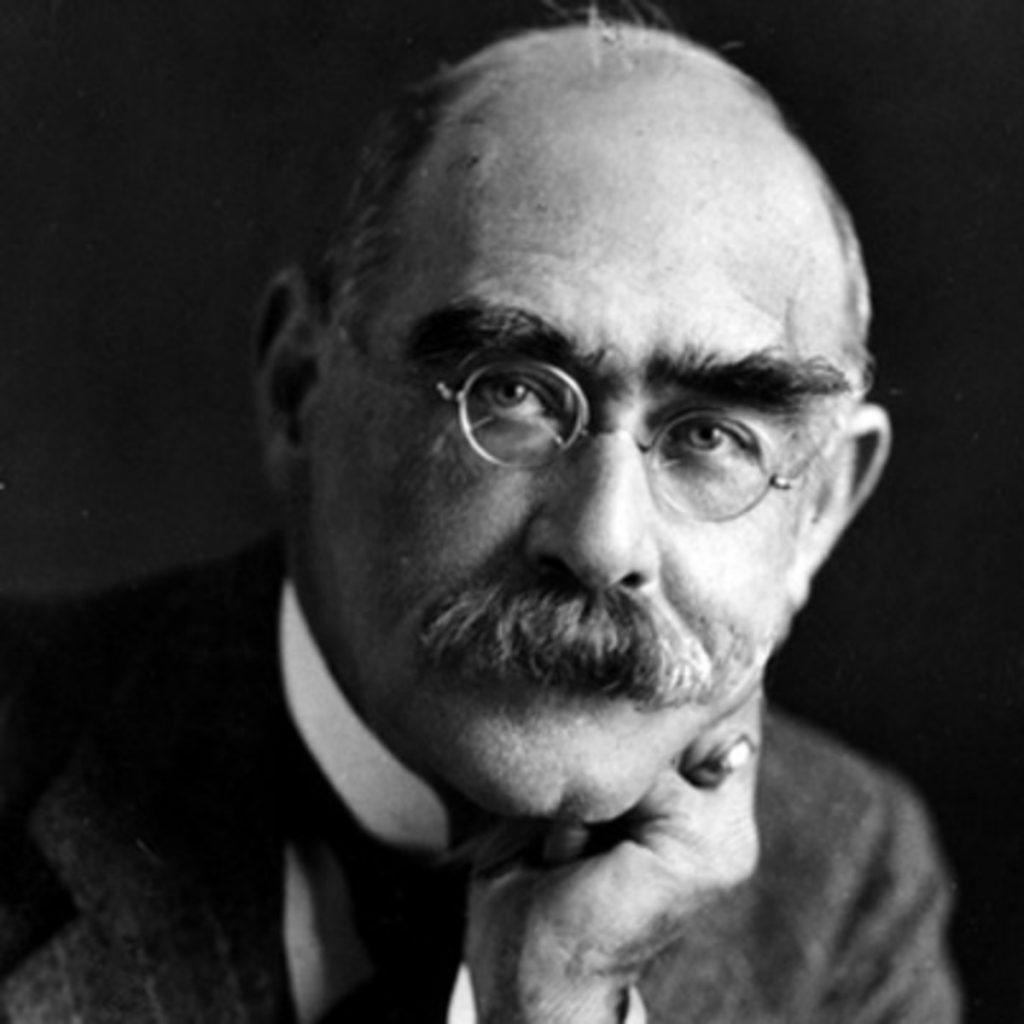



The Libertarian Futurist Society has selected four finalists for the 2025 Prometheus Hall of Fame Award for Best Classic Fiction.
This year’s finalists – first published between 1912 and 2003 – include novels by Poul Anderson and Charles Stross, a story by Rudyard Kipling, and a song by the Canadian rock group Rush.
- Orion Shall Rise, a 1983 novel (Timescape) by frequent Prometheus winner Poul Anderson, was a Best Novel finalist. It explores the corruptions and temptations of power and how a free society might survive and thrive after an apocalypse. The story is set on a post-nuclear-war Earth with four renascent but very different civilizations in conflict over the proper role of technology. While sympathetic to all four civilizations and playing fair to all sides, Anderson focuses on forward-thinking visionaries who dream of reaching for the stars while trying to revive the forbidden nuclear technology that destroyed their now-feudal, empire-dominated world. Most intriguing: the depiction of a libertarian society with minimal government operating in formerly western Canada, Alaska and the United States.
- “As Easy as A.B.C.,” by Rudyard Kipling (first published 1912 in London Magazine), the second of his “airship utopia” stories and one of the earliest examples of libertarian/liberal SF, envisions a 21st-century world founded on free travel, the rule of law, privacy, individual self-sufficiency, and an inherited abhorrence of crowds. Officials of the Aerial Board of Control, essentially a non-repressive world government reluctant to exceed its limited power, are summoned to remote Chicago. The city has been convulsed by a small group’s demands to revive the nearly forgotten institution of democracy, with its historical tendencies toward majoritarian tyranny unlimited by respect for the rights of individuals and minorities. The cautionary tale is most notable for its bitter condemnation of lynching, racism and mob violence.
- “The Trees,” a 1978 song by Rush, was released on the Canadian rock group’s album “Hemispheres.” With lyrics by Neil Peart and music by Geddy Lee and Alex Lifeson, this was a rare Top-40 rock hit conceived in the fantasy genre. The song warns against coerced equality in a beast fable – or in this case, a “tree fable.” Peart poetically presents a nature-based fable of envy, “oppression” and misguided revolution motivated by a radical true-believer ideology of coercive egalitarianism. The survival and individuality of both agitating Maples and lofty Oaks are threatened when a seemingly “noble law” is adopted in the forest to keep the trees “equal by hatchet, axe and saw.”
- Singularity Sky, a 2003 novel (Ace Books) by Charles Stross, dramatizes the ethics and greater efficacy of freedom in an interstellar 25th century as new technologies trigger radical transformation – strikingly beginning with advanced aliens dropping cell phones from the sky to grant any and all wishes. Blending space opera with ingenious SF concepts (such as artificial intelligence, bioengineering, self-replicating information networks and time travel via faster-than-light starships), the kaleidoscopic saga explores the disruptive impact on humanity as various political-economic systems come into contact. Stross weaves in pro-freedom and anti-war insights as a man and woman, representing Earth’s more libertarian culture and anarchocapitalist economy based on private contracts, interact with a repressive and reactionary colony, its secret police and its military fleet.
In addition to the above finalists, the Prometheus Hall of Fame Finalist Judging Committee considered six other nominees: “Death and the Senator,” a 1961 short story by Arthur C. Clarke; That Hideous Strength, a 1945 novel by C.S. Lewis; ”Ultima Thule,” a 1961 novella by Mack Reynolds; The Demon Breed, a 1968 novel by James H. Schmitz; Between the Rivers, a 1998 novel by Harry Turtledove;and “Conquest by Default,” a 1968 novelette by Vernor Vinge.
The final vote will take place in mid-2025. All Libertarian Futurist Society members are eligible to vote. The award will be presented at a major science fiction convention and/or online.
Hall of Fame nominees may be in any narrative or dramatic form, including prose fiction, stage plays, film, television, other video, graphic novels, song lyrics, or epic or narrative verse; they must explore themes relevant to libertarianism and must be science fiction, fantasy, or related speculative genres.
First presented in 1979 (for Best Novel) and presented annually since 1982, the Prometheus Awards have recognized outstanding works of science fiction and fantasy that dramatize the perennial conflict between liberty and power, favor private social cooperation over legalized coercion, expose abuses and excesses of obtrusive government, critique or satirize authoritarian ideas, or champion individual rights and freedoms as the mutually respectful foundation for peace, prosperity, progress, justice, tolerance, civility, and civilization itself.

The awards include gold coins and plaques for the winners for Best Novel, Best Classic Fiction (Hall of Fame), and occasional Special Awards.
The Prometheus Award is one of the most enduring awards after the Nebula and Hugo awards, and one of the oldest fan-based awards currently in sf.
Nominations for the 2026 Hall of Fame Award can be submitted to committee chair William H. Stoddard (halloffame@lfs.org) at any time up to Sept. 30, 2025. All LFS members are eligible to nominate.
The LFS welcomes new members who are interested in speculative fiction and the future of freedom. More information is available at our website, lfs.org and on the Prometheus blog (lfs.org/blog).
[Based on a press release.]
Discover more from File 770
Subscribe to get the latest posts sent to your email.

What I remember about “As Easy as ABC” is that the Aerial Board of Control keeps expanding its power through a logic analogous to what the US Feds used from the “regulate interstate commerce” clause of the Constitution. Hardly something I would expect any serious libertarian to approve of.
That doesn’t sound like the story I read. The Aerial Board of Control show up in Chicago because there are problems there, and their charter requires them to maintain the planetary traffic “and all that it implies.” But they actively resist taking over from the local government, protesting “You talk as if executive capacity could be snatched out of the air like so much horse-power. Can’t you manage yourselves on any terms?” They finally manage to find a solution that doesn’t require this. That seems a long way from a power-hungry imperial government.
The nature of the problem is significant, too. There are a small group of people who want to revive the forgotten custom of democracy, and that horrifies and outrages their neighbors—because democracy is remembered as the system under which a white majority could lynch a black minority. Concern to restrain majorities and protect minorities is a central libertarian idea.
Continually disappointed that As Easy as A.B.C gets all the attention when With the Night Mail, which shares and establishes the setting, is a much better story imho
William: As someone who does not subscribe to at least many definitions of libertarianism, on the whole I don’t find a lot to object to in the Federal expansion that hinges on “regulating Interstate commerce” either. But I can’t see why a libertarian should like that jurisdiction creep, even if the creative interpretation is so far used for good and with restraint.
Sophie: I think With the Night Mail is the better story, although probably of minimal interest for its social extrapolation since that’s not where the focus is. One negative is that the airships use an antigravity gas.
That, granted, required a bit less suspension of disbelief when the story was published than it would today, but even then was a stretch and unnecessary—unless Kipling presciently sensed how badly future real dirigibles would fare in storms.
Rush is a great band, and “The Trees” certainly deserves the honor being noted here. But it is not a “top-40 rock hit.” It didn’t even chart.
Pingback: AMAZING NEWS FROM FANDOM: December 22, 2024 - Amazing Stories